This book is written by Mark Manson, who is a star blogger with more than two million readers and this book is his first book. This book is a self-help guide; a key to being more robust, happier people is to handle adversity better and stop trying to be positive all the time.
I have read many books, but somewhere I have understood that this book shakes our traditional and routine thinking. I was shocked to learn about many aspects of this book, which is true.
Chapter 1. Do not try
In this chapter, Mark talks about not trying. Mark says that self-improvement and success often occur together, but that does not mean they are the same.
According to Marc, our culture is obsessively focused on unrealistically optimistic expectations like; being happier and healthier. Be the Best. Be faster, wiser, more prosperous, famous, admired, and productive, but when we stop and think about it, all the positive and self-help stuff fixates on what we lack.
For example, we learn about the best ways to make money because we already need more. We repeat affirmations like ‘we are beautiful because we feel that we are not.
We follow dating and relationship advice as we already think we are unlovable. We try visualization exercises about being more successful because we feel we need to be more successful.
Marc says a confident man does not need to prove he is satisfied. Likewise, a wealthy woman does not need to convince anybody that she is rich.
Either you are, or you are not. But if we are always dreaming of something, we are reinforcing the same unconscious reality over and over that we are not that.
According to Marc, giving too many f*cks harms our mental health. The key to a good life is not giving a f*ck about more; it’s giving a f*ck about less and only what is accurate, immediate, and essential.
The feedback loop from hell:
Marc says when we are so worried about doing the right things all the time, we become concerned about how much we worry. And we feel guilty for every mistake we make and begin to feel guilty about how guilty we are feeling.
Aur we get sad and alone so often that it makes us feel even more painful and independent just thinking about it.
Marc says this feedback loop from hell has become a borderline epidemic, making many of us overly stressed, overly neurotic, and highly self-loathing.
And what gets us in trouble is feeling bad about feeling bad; we feel guilty for feeling guilty, angry about getting angry, and anxious about feeling anxious. This is why not giving a f*ck is a key and will save the world.
Marc, in this chapter, talks about the theory of ‘The Backward law given by philosopher Alan Watts – This theory says The desire for a more positive experience is itself a negative experience, and acceptance of a negative experience is a positive experience.
The more you always pursue feeling better, the less satisfied you become because pursuing something only reinforces that we lack it in the first place.
For example, The more we desperately want to be rich, the more poor and unworthy we feel, regardless of how much money we make.
Alan here quotes a philosopher Albert Camus who said- You will never be happy if you continue to search for what happiness consists of. You will never live if you are looking for the meaning of life.
Marc says the Backward law theory is called backward because not giving a f*ck works reverse. He says that pursuing the positive is negative and pursuing the negative generates the positive.
So, for example, failure in business leads to a better understanding of what’s necessary to be successful.
The avoidance of suffering is a form of torture. The release of struggle is a struggle. The denial of failure is a failure, and hiding what is shameful is a form of shame.
Marc explains what is a subtle art of not giving a f*ck. He says we need to learn, focus, and prioritize our thoughts effectively. We need to know how to pick and choose what matters to us and what does not matter based on our values.
#1 – Not giving a f*ck does not mean being indifferent; it means being comfortable with being different. Marc says we need to learn to say ‘F*ck it, not to everything in life but to everything unimportant. We must reserve our f*cks for what truly matters: friends, family, and purpose.
#2 – To not give a f*ck about adversity. We must give a f*ck about something more important than adversity. When a person has no problems, the mind automatically finds a way to invent something. Finding something important and meaningful in life is the most productive use of time and energy.
#3 – Whether we realize it or not, we always choose what to give a f*ck about. Marc says everything seems to matter so much when we are young, but when we get old, we become more selective about the f*cks we are willing to give because we mature.
Marc gives the point of writing this book at the end of this chapter; he says this book helps us think a bit more clearly about what we are choosing to find important in life and what we are choosing to find unimportant. This book turns our pain into a tool, our trauma into power, and problems into better problems, which is real progress.
Chapter 2. Happiness is a problem
In this chapter, Marc shares the story of Buddha, how he achieved enlightenment, and his philosophical theory that happiness is not a solvable equation and that dissatisfaction and unease are inherent parts of the human body and components to create consistent happiness. Marc explains the same Buddha theory from his biological perspective in this chapter.
According to Marc, we suffer for the simple reason that suffering is biologically sound. It is nature’s preferred agent to inspire change. We are wired to become dissatisfied with whatever we have and satisfied with only what we do not have.
Marc here talks about two kinds of pain. Physical pain and psychological distress. He says physical pain is also essential because it tells us what is good for us versus bad. It helps us adhere to our limitations.
Marc says that psychological pain is not necessarily always bad. It can be healthy and necessary. The emotional pain of rejection and failure teaches us how to avoid making the same mistakes in the future.
He says problems never go away – they improve. The solution to one problem is merely a creation of the next one. Don’t hope for a life without problems. There is no such thing. Instead, hope for a life full of good problems.
According to Marc, happiness comes from solving the problem. When we avoid solving problems and feel that we don’t have any issues, we will make our life miserable. To be happy, we need something to be solved.
Therefore happiness is a form of action and activity. It is not something that we magically discover. Happiness is a constant work in progress because solving problems is continual work.
Marc says that solving problems is a simple concept, but life does not feel that simple for some people. It’s because of two reasons.
Firstly they don’t accept they have problems. They are always in denial mode. They deny reality, which makes them happy for a short period but leads to a life of insecurity and emotional repression.
Secondly, they always play victim mentality. They believe there is nothing they can do to solve their problems. They blame other people and circumstances for their problems which makes them happy for a short time but leads to a life of anger, helplessness, and despair.
Life’s most essential and straightforward component is our struggles determine our successes. Our problems birth from our happiness and slightly better and upgraded problems.
Chapter 3. You are not special
In this chapter, Marc talks about genuine self–esteem. With the help of an example of a person called Jimmy, Marc says that merely feeling good about ourselves does not really mean anything unless we have a good reason to feel good about ourselves.
The problem with the self–esteem movement is that it measured self-esteem by how positively people felt about themselves.
But a true and accurate measurement of one’s self-worth is how people think about the negative aspects of themselves. A person with high self-worth can look at the negative parts of his character and then act to improve them.
For example, I am irresponsible with money, exaggerate my success, and rely too much on others to support me. But people incapable of acknowledging their problems cannot improve their lives in any lasting and meaningful way.
People who value their life incredibly see the negative part of their character and then improve it, such as being irresponsible with money, or exaggerating their success, and being too dependent on others for support. But people who do not understand their problems cannot make life meaningful.
According to Marc, the truth is that there is no such thing as a personal problem. If we have a problem, chances are that millions of other people have had it in the past, have it now, and will have it in the future. It just means that we are not unique.
We must dedicate tons of time and energy to becoming truly great at something. But because we have limited time and energy, only some of us ever become truly exceptional at more than one thing, if anything at all.
As per a famous quote, we are all destined to do something genuinely exceptional; if everyone were extraordinary, then by definition, no one would be extraordinary.
Chapter 4. The value of suffering
Marc says in this chapter that suffering is inevitable, but we should not ask how do I stop suffering, but we should ask- why am I suffering-for what purpose?
To understand the purpose of suffering but there should be self-awareness. Marc says self-awareness is like an onion that has multiple layers. The first layer of this onion is understanding one’s emotion- this makes me happy, this makes me sad, and this gives me hope.
The second layer of the self-awareness onion is the ability to ask why we feel certain emotions.
This layer helps us understand the root cause of the feelings that overwhelm us. Once we know the root cause, we can ideally do something to change it. The third layer is our values: why do I consider this success/failure?
How am I choosing to measure myself? By what standard am I judging myself and everyone around me?
This layer is essential because our values determine the nature of our problems, and the nature of our problems determines the quality of our life.
Chapter 5. You are always choosing
According to Marc, The difference between a painful problem and being assertive is the sense that we chose it and are responsible for it.
When we feel we are choosing our problems, we feel empowered, but when we think that our problems are being forced upon us against our will, we feel victimized and miserable.
Marc says the more we accept responsibility in our lives, the more power we will derive. Taking responsibility for our problems is thus the first step to solving them.
Responsibility and fault often appear together in our culture; therefore, many people hesitate to take responsibility for their problems because they believe that to be responsible for your problems is also to be at fault for your problems.
Nobody else is ever responsible for our situation but us. Many people may be to blame for our unhappiness, but nobody is ever responsible for our sorrow but us.
This is because we always get to choose how we see things, react to something, and value things. We all love to take responsibility for success and happiness, but taking responsibility for our problems is a real-life improvement.
Chapter 6. You are wrong about everything (So am I)
Marc says we are wrong about everything throughout our life. Wrong about self, others, society, culture, the world, the universe, and everything. Marc says many become so obsessed with being ‘right’ about their life that they never end up living it.
People say they are afraid of failure, rejection, or someone saying no. But that’s not it. Sure, rejection and failure suck, but there are particular certainties that we hold on to.
Uncertainty also relieves us of our judgment of ourselves. We don’t know if we are lovable or not, we don’t know how attractive we are, and we don’t know how successful we can potentially become.
The only thing to achieve these things is to remain uncertain and be open to finding them through experience.
Chapter 7. Failure is the way forward
Improvement at anything is based on thousands of tiny failures, and the magnitude of our success is based on how many times we have failed at something.
If someone is better than us, it’s likely because she has failed at it more than we have. If someone is worse than us, it’s likely because he has not been through all of the painful learning experiences we have.
A young child trying to learn to walk will fall and hurt himself many times, but at no point does the child thinks that walking is not for him and I am not good at it.
Most of us reach a place where we are afraid to fail, and we start avoiding failure.
We can be truly successful at something we are willing to fail at. If we are unwilling to die, then we are reluctant to succeed.
Many people, when they feel some form of pain or anger or sadness, drop everything and attend to numbing out whatever they are feeling.
They aim to return to feeling good as quickly as possible, even if that means returning to their shitty values.
Marc shares the learning from his Maths teacher that if you are stuck on a problem, don’t just sit and think about it. Instead, start working on it.
Even if you don’t know what you are doing, working on it will eventually cause the right ideas to appear in your head.
Don’t just sit there. Do something. The answers will follow.
Action is always within our reach. We can become our source of motivation. We can become our source of inspiration. And with simply doing something as our only metric of success- then failure pushes us forward.
Chapter 8. The importance of saying ‘No’
The only way to achieve meaning and a sense of importance in one’s life is through rejection of alternatives, narrowing freedom, and a choice of commitment to one place, belief, and person.
People can’t solve problems for us and should not try as that won’t make us happy. Likewise, we can’t solve other people’s problems because that won’t make them happy.
People who blame others for their actions and emotions do so because they believe they constantly paint themselves as victims. Eventually, someone will come along and save them. They will receive the love they have always wanted.
People who take the blame for other people’s actions and emotions do so because they believe if they fix their partner and save them, they will receive the love and appreciation they have always wanted.
For victims, the hardest thing to do is hold themselves accountable for their problems. They have spent their whole life believing others are responsible for their fate. Taking responsibility is terrifying to them.
For savers, the hardest thing to do is stop taking responsibility for other people’s problems. They have spent their whole life feeling valued and loved only when saving somebody else. Letting go of this is terrifying to them as well.
There is a difference between doing something out of obligation and voluntarily. So there is a test to check the difference.
Ask yourself these questions: How would the relationship change if I refused? And If my partner refused something I wanted, how would the shift in relationship?
If the answer is that a refusal would cause a blowout of drama, it’s a bad sign of a relationship. That means the connection is conditional based on superficial benefits rather than unconditional acceptance of each other.
People with solid boundaries understand that it’s unreasonable to expect two people to accommodate each other hundred percent and fulfill every need the other has.
How to build trust? Without conflict, there can be no trust. Conflict shows us who is there for us unconditionally and who is there for the benefits. For a relationship to be healthy, both people must be willing and able to say no and hear no.
Commitment gives us freedom because it hones our attention and focus, directing us toward what is most efficient at making us healthy and happy. Commitment allows us to focus intently on critical goals and achieve tremendous success.
Chapter 9. And then you die
Marc says death scares us; because we avoid thinking about it, talking about it, and sometimes even acknowledging it, even when it’s happening to someone close to us.
Marc here shares the example of Becker’s most influential intellectual book. The denial of death. Becker argued that we are all aware at some level that our physical self will eventually die, and death is inevitable, and that is our biggest fear.
To compensate for this fear, we try to construct a conceptual self that will live forever. Therefore, people try so hard to put their names on buildings, statues, and spines of books. All the meaning in our life is shaped by this innate desire never to die.
In ancient Greek and Roman history, people were to keep death in mind to appreciate life more and remain humble in the face of adversity. Likewise, in various forms of Buddhism, the practice of meditation is often taught as a means of preparing for death while staying alive.
Marc says we all need to learn to accept death and make the thought of our own death lighter. This can be done by identifying and confronting our entitlement, taking problems of our problems, suffering through fears and uncertainties, accepting failures, and embracing rejections.
So this was the book that I have tried to implement entirely in my life, and I am thrilled with the result.
The Subtle Art of not Giving a F*ck Book Review
Manson’s writing style is engaging, humorous, and direct, making the book an enjoyable and easy read. The author uses personal anecdotes, pop culture references, and philosophical ideas to illustrate his points, creating a relatable and down-to-earth guide for navigating life’s complexities.
One of the key takeaways from the book is the idea that we should be more selective about the things we care about and invest our energy in. By choosing what to give a f*ck about, we can prioritize our values and goals, leading to a more meaningful and fulfilling life. Manson also emphasizes the importance of taking responsibility for our actions, learning from our failures, and embracing the inevitability of suffering.
“The Subtle Art of Not Giving a F*ck” is a powerful and unconventional self-help book that offers valuable insights and practical advice for those seeking to live a more authentic and purposeful life. It is a must-read for anyone looking to break free from the constraints of societal expectations and cultivate a deeper understanding of themselves and the world around them.
Contents

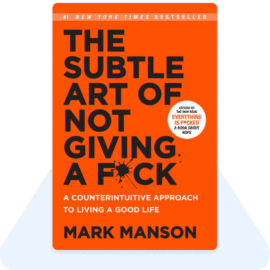
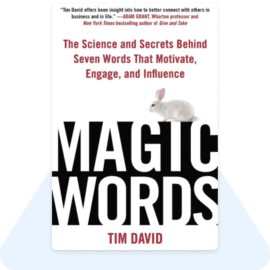
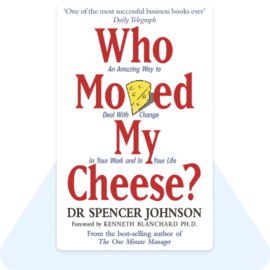
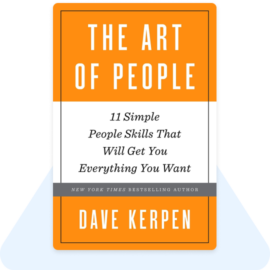
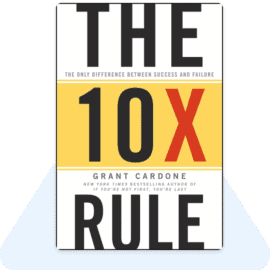

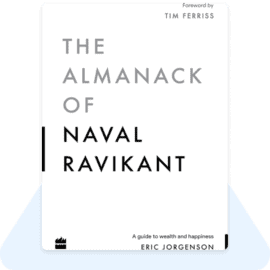
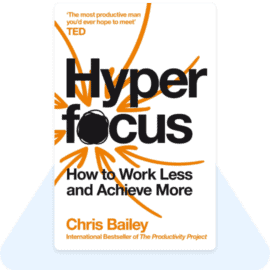

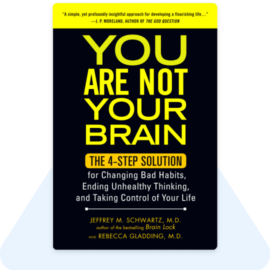
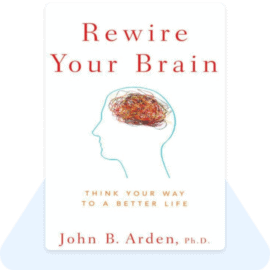
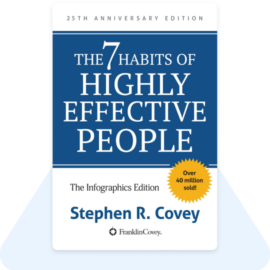
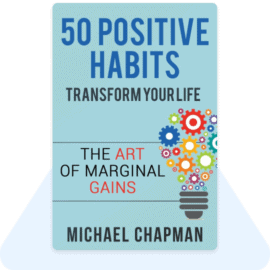
Thank you so much for the book ” The Subtle Art of not giving a F*ck” ???
Day22/28 days book reading challenge
finished reading
Failure is the way forward!
जितना ज्यादा जिम्मेदारी हम अपनी जिंदगी में लेते है उतनी ज्यादा power हमे मिलती हैं
? Amazing topic
THE SUBTLE ART OF NOT GIVING A F*Ck
“No matter where you go,there you are. Well the same is true for adversity and failure. No matter where you go, there is a five-hundred-pound load of shit waiting for you. And that’s perfectly fine. The point isno’t to get away from the shit. The point is to find the shit you enjoy dealing with”.
“The only way to overcome pain is to first learn how to bear it”.
“Remember, nobody is actually happy to stand in front of a mirror and tell himself that he’s happy”.
“You cant win if u don’t play.
This is my favourite “ I am awesome and the rest of you all suck, so I deserve special treatment. I suck and the rest of you are all awesome, so I deserve special treatment.